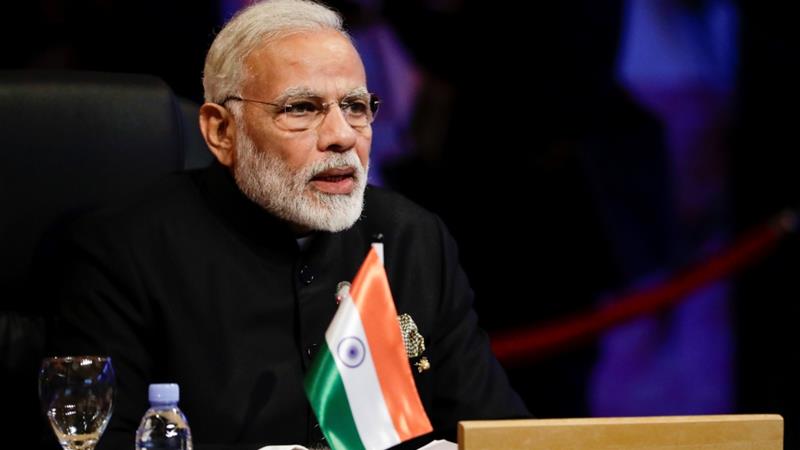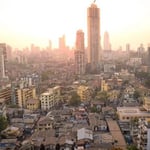It’s Modi by a Mile…and here’s why it matters.
If you felt tremors under your feet this week, it’s because we’ve just witnessed the biggest expression of democracy in history: with some 800,000,000 Indian citizens, 67% of its population, taking part in the subcontinent’s elections and, perhaps equally significantly, more women than ever before turning out to have their say on who will take the subcontinent forward. Everything about the process was monumental, including the sheer scale of abuse and bile freely heaped on one another by both main parties. Nardendra Modi called the assassinated Rajiv Ghandi (fresh faced Rahul’s dad) the “number one corrupt man in the country” and Rahul was probably stung too by the accusation that his family used an Indian Navy Aircraft Carrier as a glorified taxi to take them on holiday. To be fair, Rahul tried to get his revenge in first: accusing Modi of fraudulent involvement in the controversial Rafale Jet affair, but that backfired when he was forced to apologise for (inadvertently) suggesting the Supreme Court had agreed with him (when it didn’t).
And of the 2,800 odd candidates who stood for either of the main parties, an astonishing 464 (a little under one in five or 20%) had criminal records: indeed, the Congress Party ran 40 candidates who were facing current criminal charges including rape, murder and attempted murder: only narrowly beating the BJP tally of 38. These aren’t necessarily the sort of people you would want to bump into after dark in a Mumbai alley.
Small wonder then, that with admirable prescience the BJP Party cautioned its opponents on Wednesday to accept “defeat with grace”, prompting Congress to make one last allegation of voter fraud to keep the pot boiling.
They needn’t have bothered…It was Modi by a Mile.
And after all the dust has settled; after all the recriminations, allegations and abuse has been hurled, something rather splendid has happened too: the world’s largest democracy, and one of the world’s most diverse and richly textured countries, has just overseen a peaceful transfer of power. And it doesn’t matter a jot that this power has been given back to the person who gave it up: not when you consider the electoral records of neighbouring Pakistan and Myanmar across the Bay it doesn’t. In truth this was a democratic triumph for the 800,000,000 Indian citizens who stood for hours in the blazing sun from Utter Pradesh to Kerala to have their voices heard, and we should celebrate it as such.
Its certainly going to take more than a few unwholesome rogues in a dark alley, harbouring a grudge to diminish the scale of the triumph.
But this election, and its emphatic result in particular, matter much more even than that: because the policies of Nardendra Modi’s last administration were largely responsible for transforming India’s economy since 2014.
And yes, economic change was certainly in the air on the subcontinent before 2014, but it’s been turbo charged ever since. Think of the milestone economic events that have emerged in those few short years: Demonetisation, Inflation now running at less than 4%, GST Reforms (creating a genuine prospect of whole India trade), a revamped Insolvency Code, the Jan Dhan Yojana Rural Program, the Affordable Housing Program (now back on target after years of stagnation) and four times more new highway miles built in a single year on the subcontinent than have ever been built in Ireland and the United Kingdom put together.
India’s GDP growth rate is still amongst the highest in the world (among major economies) and it will be the fastest growing large economy in the world for at least the next two years according to the IMF, projected to grow annually at 7.3%. Compare that with Brexit bound Britain where the equivalent figure is 0.6%, the United States’ at 3.2% and even China, which is running at 6.9%.
As the old joke about the three legged pig goes, you don’t eat it all at once and when things are going this well for India, it’s unsurprising so many of its citizens have decided to hang on to what you’ve got. That, in short, is why it was Modi by a mile…and that’s why it all matters so much.
Nobody understands the fundamentals of the Indian economy better than Red Ribbon Asset Management, which has placed the subcontinent at the heart of its investment strategies since the company was founded more than a decade ago. Drawing on an unrivalled knowledge of local markets with an expert team of more than a hundred advisers working in India’s economic hotspots, the Red Ribbon Private Equity Fund offers unique opportunities to share in the potential of this, the fastest growing large economy on the planet.
Executive Overview
As an Indian National, I’m proud of the manner in which the subcontinent’s elections have been conducted and as someone doing regularly business on the subcontinent, I’m pleased at their outcome too.
It is no small matter of local administration for a country where more than 900,000,000 of its citizens are eligible to vote to shepherd the mammoth process so smoothly over a polling period of more than a month. No small matter too, lest we forget, that the entire process was conducted peacefully despite the usual rough and tumble between candidates, which has come to charecterise politics in India. As somebody once said, there aren’t any fleas on a dead dog.
And as the article points out, we should never take a peaceful transition of power for granted: especially in view of the events over recent years in Pakistan and Myanmar.
And as a businessman too, who has been investing in India for more than a decade through Red Ribbon platforms, I am pleased that Prime Minister Modi has been re-elected because BJP economic policies have been the foundation of the unprecedented economic success the subcontinent is enjoying today. I want that success to continue, and with Narendra Modi at the helm I’m confident India’s economy is now back in safe hands…








Leave a Reply